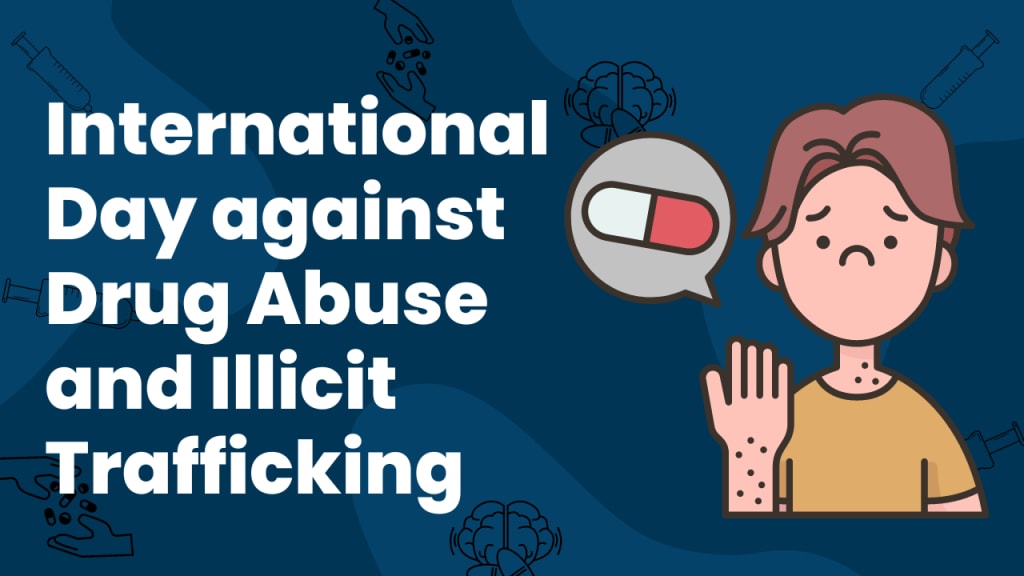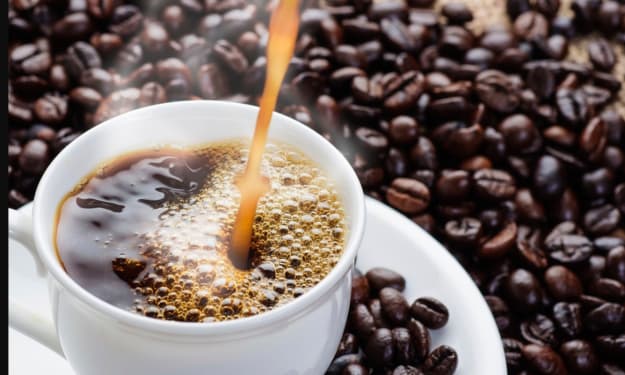International Day against Drug Abuse and Illicit Trafficking: Combating the Global Menace
In this article, we will explore the impact of drug abuse and illicit trafficking, the measures taken to combat them, and the importance of raising awareness on the International Day against Drug Abuse and Illicit Trafficking.

Introduction
The International Day against Drug Abuse and Illicit Trafficking is observed every year on June 26th. This significant day serves as a global reminder of the ongoing battle against drug abuse and illicit trafficking, highlighting the need for collective efforts to address this pressing issue. In this article, we will explore the impact of drug abuse and illicit trafficking, the measures taken to combat them, and the importance of raising awareness on the International Day against Drug Abuse and Illicit Trafficking.
International Day against Drug Abuse and Illicit Trafficking: A Global Problem
The International Day against Drug Abuse and Illicit Trafficking sheds light on the widespread problem of drug abuse and illicit trafficking that affects communities worldwide. This issue has far-reaching consequences, from damaging individuals' health and well-being to undermining societal stability and economic development.
The Menace of Drug Abuse
Drug abuse is a complex and multifaceted issue that encompasses the excessive and harmful use of substances such as opioids, cocaine, marijuana, and synthetic drugs. It not only poses severe health risks to individuals but also strains healthcare systems and burdens families and communities.
Drug abuse can lead to addiction, which is characterized by a compulsive need for the substance and an inability to control its consumption. This addiction cycle creates a vicious cycle, affecting individuals' physical, mental, and emotional well-being, often resulting in a decline in their overall quality of life.
Illicit Trafficking: Fueling the Fire
Illicit drug trafficking further exacerbates the problem of drug abuse. Organized criminal networks profit from the illegal production, distribution, and sale of drugs, perpetuating a cycle of violence, corruption, and societal decay. The proceeds from illicit drug trade often fund other criminal activities, including terrorism, human trafficking, and money laundering.
Illicit trafficking not only undermines the rule of law but also poses significant challenges for law enforcement agencies and governments worldwide. Efforts to combat drug trafficking require international cooperation, intelligence sharing, and comprehensive strategies to disrupt these criminal networks and dismantle their operations.
Measures Taken to Combat Drug Abuse and Illicit Trafficking
Recognizing the urgency and gravity of the situation, governments, organizations, and communities have undertaken various measures to combat drug abuse and illicit trafficking. These initiatives focus on prevention, treatment, rehabilitation, and law enforcement.
Prevention and Education: Building Resilience
Prevention programs play a crucial role in raising awareness and empowering individuals to make informed choices. Education campaigns, both in schools and communities, equip people with the knowledge and skills to resist peer pressure, understand the consequences of drug abuse, and seek help when needed.
Governments and organizations allocate resources to develop comprehensive prevention strategies, promoting drug-free lifestyles and providing support systems for at-risk populations. These initiatives aim to build resilience, enhance protective factors, and reduce the demand for drugs.
Treatment and Rehabilitation: A Path to Recovery
For individuals struggling with drug addiction, access to effective treatment and rehabilitation programs is essential. Medical professionals, therapists, and counselors work together to provide comprehensive care, including detoxification, counseling, behavioral therapies, and support groups.
Governments and non-governmental organizations collaborate to ensure the availability of treatment facilities, trained professionals, and support services. By providing individuals with the necessary tools and support, these programs offer hope and a path to recovery, breaking the cycle of addiction.
Law Enforcement: Disrupting Criminal Networks
To combat illicit drug trafficking, law enforcement agencies employ a range of strategies, including intelligence gathering, interagency collaboration, and border control measures. By disrupting the supply chains and dismantling criminal networks, authorities aim to reduce the availability of illicit drugs and deter potential traffickers.
International cooperation plays a vital role in tackling transnational drug trafficking. Agreements, such as the United Nations Convention against Illicit Traffic in Narcotic Drugs and Psychotropic Substances, facilitate coordination among nations to curb the flow of illicit drugs and dismantle global criminal networks.
Frequently Asked Questions (FAQs)
Q: What is the theme for this year's International Day against Drug Abuse and Illicit Trafficking?
This year's theme for the International Day against Drug Abuse and Illicit Trafficking is "Share Facts on Drugs, Save Lives."
Q: How can individuals contribute to the fight against drug abuse and illicit trafficking?
Individuals can contribute by raising awareness, supporting prevention programs, volunteering with organizations working in this field, and advocating for policies that prioritize substance abuse treatment and rehabilitation.
Q: What are some common risk factors for drug abuse?
Common risk factors for drug abuse include genetic predisposition, family history of addiction, social environment, peer influence, mental health disorders, and easy access to drugs.
Q: Are there any global initiatives aimed at combating drug abuse and illicit trafficking?
Yes, several global initiatives exist to combat drug abuse and illicit trafficking. These include the United Nations Office on Drugs and Crime (UNODC), the World Health Organization (WHO), and various regional and international agreements and conventions.
Q: How does drug abuse impact society?
Drug abuse has a profound impact on society, leading to increased healthcare costs, strain on social welfare systems, crime rates, loss of productivity, and the erosion of community well-being and safety.
Q: What can be done to prevent drug abuse among young people?
Prevention efforts should focus on comprehensive education, promoting healthy coping mechanisms, fostering supportive environments, and ensuring access to positive extracurricular activities. Engaging parents, schools, and communities is essential in providing guidance and support to young people.
Conclusion
The International Day against Drug Abuse and Illicit Trafficking serves as a reminder of the global fight against drug abuse and illicit trafficking. By raising awareness, implementing preventive measures, offering effective treatment and rehabilitation programs, and strengthening law enforcement efforts, we can combat this menace and create a healthier and safer world. Together, let us work towards a future free from the devastating effects of drug abuse and illicit trafficking.





Comments
There are no comments for this story
Be the first to respond and start the conversation.